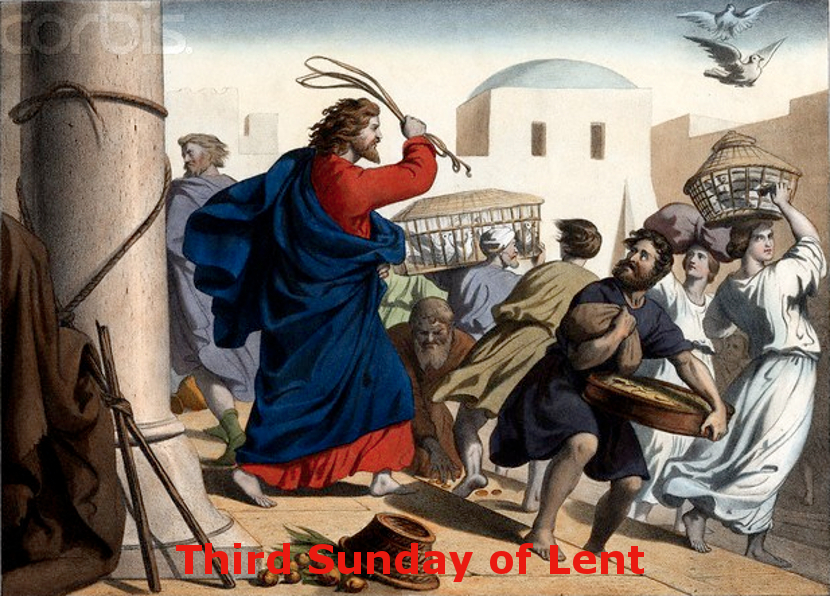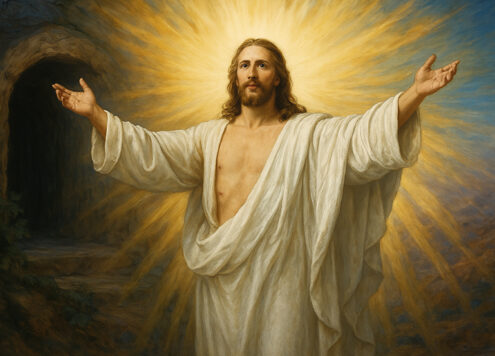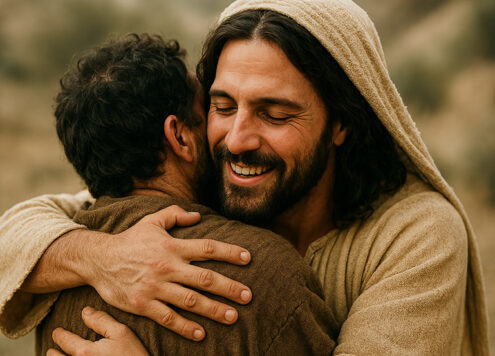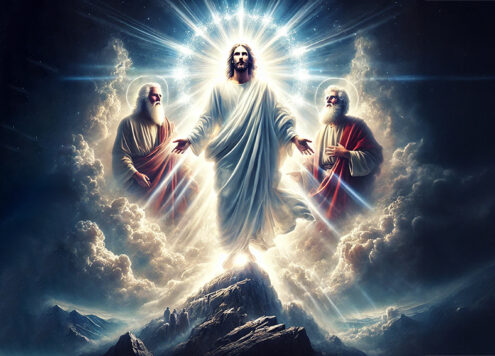We are privileged to have a personal relationship with God. This affair of the heart was made possible by the Son of God who came down to earth so we could live in Him and HE in us. This idea was the Lord’s, not ours. Aristotle, reflecting on God in his book on metaphysics, could not envisage a personal relationship between God and man because the chasm separating both, he argued, was too great. In the gospels, we see this amazing bonding of the human person and Jesus, the Son of God, who reveals Himself to us and echoes right back to God the Father. Jesus’ deepest knowing comes from following God’s will. He knew God by heart for He was God’s only begotten Son. His sacred heart was set on God, and this anchored Him and directed His footsteps, His words, His decisions, even His righteous anger when He drove the moneychangers out of the temple, as we read in today’s gospel.
Jesus’ behavior in today’s scripture is startling. The evangelist wants us to know that someone very special has come to town. Someone is here who knows who He is and who knows who God is and who knows what effect he would have on time and history.
All of Jesus’ actions are anchored in His own knowledge as the Son of God and the greedy behavior of the moneychangers in the temple was clearly not of God. Those would-be worshipers were making a business of worship rather than giving true worship to Almighty God. By the sheer power of his righteous anger, Jesus drove off all those who would turn His Father’s house into a place to make money. Those who turned God’s temple upside down into a market place had a bitter awakening. They were themselves upended.
Jesus refers to Himself as the living temple which, if destroyed, would rise again. We have heard this many times before. It is familiar, but not startling to us. The meaning of Jesus’ words, however, escaped his listeners, but let them not escape us during this season of Lent. With the coming of Jesus, new life was in the making. Resurrection was upon us, and Jesus was the living temple, not of stones but of flesh and blood. We are being asked to set our hearts on this new temple of flesh and blood where business no longer is “as usual.”
We are freed by Christ, the living temple, from being people without direction to being people with direction. We have been sprung free from the dehumanizing slavishness to all that is less than God. We don’t have to pay homage or coin to any master who competes with God’s will for us. We have been set free because God’s triumph in Jesus means that everybody is sacred, everybody can be forgiven, and everybody can have new life. Do you realize, as St. Paul says, “that you are God’s temple and that God’s spirit dwells in you?” ( 1 Corinthians 3:16 ). The Christian who only sees God in the grandeur of a Church, like the worshipers in today’s Gospel, but not in other people is only telling half the story. We must serve God both in the Church when we gather for worship and in the way we treat our neighbor after worship. In this way, our lives become one continuous act of worship to the same God who dwells in the human soul as well as in a building.
Those who follow Jesus, the living temple, experience new life because their bodies become temples of the Lord.
Fr. Hugh Duffy











5 Comments
Dr.G.Heath King
According to St. Mark’s placement, followed by that of Mathew and Luke, this act of defiance against the moneylenders in the temple occurred toward the end of Jesus’ public appearances, drawing the attention of the Romans. It thus may have set in motion his arrest and crucifixion.
Dr. G. Heath King
…It resonates to our present day where monetary values increasingly intrude upon the spiritual realm, as well as sully and demean human relations. It should be highlighted as one of the most important and revealing of the parables.
Hugh
A powerful story, Heath, as you say, about the true nature of worship.
Ginny Rickard
Father Duffy,
This is a trivial question, but…
Why is the temple now referred to as a “market” instead of a “den of thieves?” Why the change in terminology?
Thank you…
Hugh Duffy
Ginny:
The reference to the market refers to an area outside of the temple where worshipers going into the temple had to exchange their Roman coins for a Jewish coin by paying a tax. This was an abuse and extended to other items as well. Jesus drove these abusers out of the temple and compared them to a den of thieves. Using worship for commercial purposes is simply an abuse.